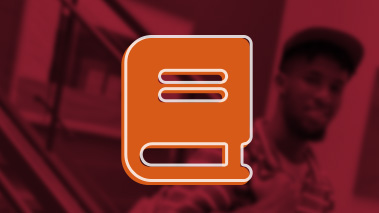Medical Laboratory Technology
- Associate of Applied Science (A.A.S.)
Program Snapshot
Your Learning Options
In-Person, Hybrid, Online
69 Credit Hours
Estimated Time to Complete
2 years (5 full-time semesters)
In-State Tuition Per Credit Hour
$176.00 | Calculate your costs
Why Medical Laboratory Technology?
Explore an integral part of healthcare, the diagnosis and treatment of diseases — making a significant impact on the lives of patients.
- Learn in a program with excellent clinicals, that offers a comprehensive and accredited pathway.
- Study with highly-trained instructors who encourage student success by maintaining high academic standards and providing additional support where needed.
- Work in a high-demand field with graduates often securing employment before completing the program.
- Apply Reynolds credits toward a bachelor's degree in Medical Laboratory Science at Virginia Commonwealth University or Old Dominion University, after passing a national credentialing exam and while working in the field.
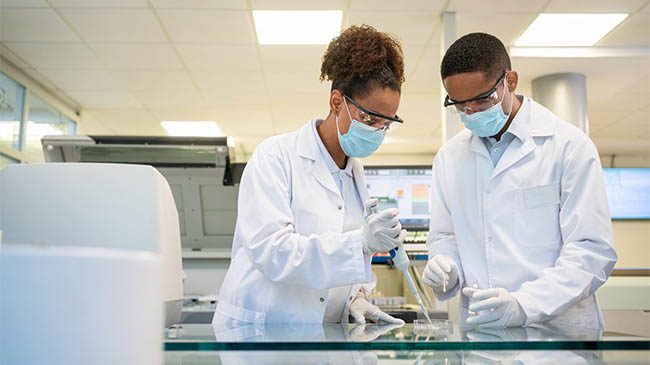
Program Roadmap
Get all the details on our Medical Laboratory Technology program, including class sequences, admission requirements, financial considerations, and more.
Paying for College
We are committed to using all of the available funds to help you gain access to a college education. In fact, more than 91% of our students graduate without any educational debt. In 2023, Reynolds Community College students received over $21 million dollars in grants, loans, work-study and scholarships with the average aid awarded totaling over $4,000 per student.
Payment plans are offered to break down tuition payments. Textbook Assistance and Laptop Lending Programs are also available. Be sure to explore all the types of financial aid available as well!

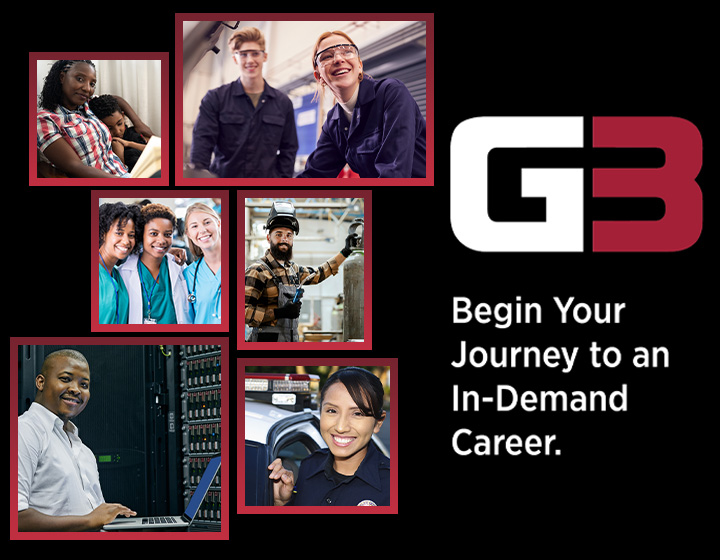
Get a Skill. Get a Job. Get Ahead.
G3 financial assistance at Reynolds can help cover tuition for select programs like this one! Starting something new or changing a career path can be scary, but if you want to earn workplace certifications or an academic degree that leads to a career, G3 tuition assistance can help remove the financial barrier of going to college.
Why Reynolds?
We are more than a community college.
Reynolds is the key that unlocks the door to your academic and professional success. Here you will find a safe place to start. We will help you explore, dream, succeed, try, and try again. Our amazing faculty and highly personalized advisors, your Reynolds Navigators, are well known for guiding you to discover that "aha moment.” That means an outstanding college experience, less debt, more freedom, and a solid start on your future.
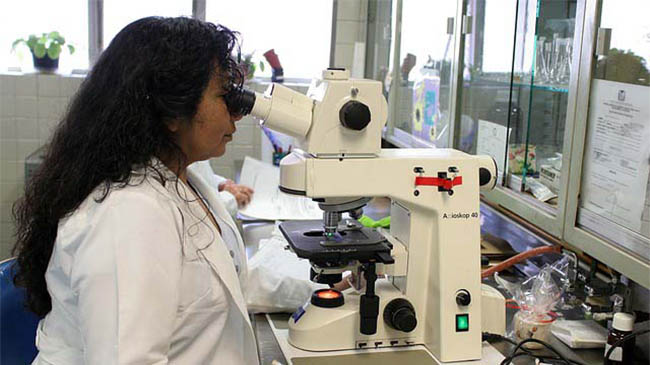
Study in a program that is accredited by the National Accrediting Agency for Clinical Laboratory Science (NAACLS). Graduates exhibit competencies covering blood bank, clinical chemistry, hematology, immunology, microbiology, and more.
Benefit from courses designed to accommodate various learning preferences, ensuring a dynamic and accessible educational experience, whether in-person, online, or hybrid.
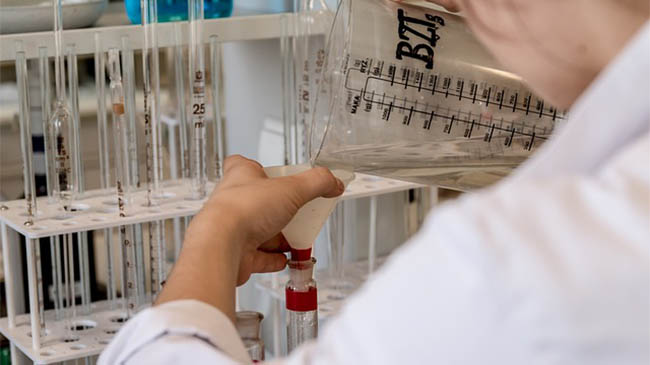
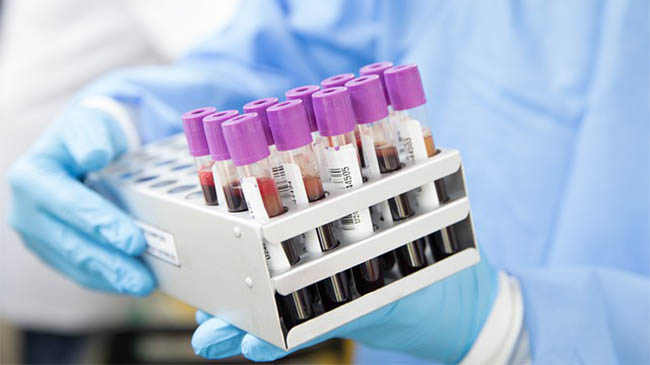
Look forward to a career high in demand, with a national shortage of laboratory workers. Graduates often receive job offers before or immediately after graduation.
Be engaged, ask questions, and make connections.
Jennifer Vaughan
2015 Graduate, Senior Scientist, Virginia Division of Consolidated Laboratory Services
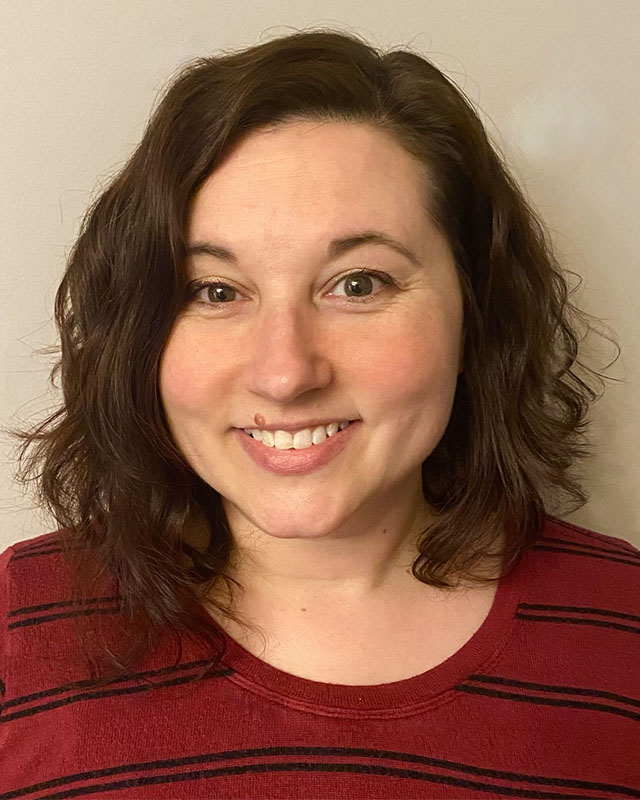
Class Highlights
MDL 216 - Blood Banking
Learn fundamentals of blood grouping and typing, compatibility testing, antibody screening, component preparation, donor selection, and transfusion reactions and investigation.
MDL 125 - Clinical Hematology I
Study the cellular elements of blood, including blood cell formation, and routine hematological procedures.
MDL 251 - Clinical Microbiology I
Explore handling, isolation, and identification of pathogenic microorganisms. Emphasizes clinical techniques of bacteriology and mycology. Part I of II.
Additional Program Information
PURPOSE: The Medical Laboratory Technology major is designed to prepare students for certification and employment as Medical Laboratory Technicians. Upon satisfactory completion of the program, the student is eligible to apply for national certification examinations. With satisfactory completion of the national certification exam, students are eligible to pursue a Bachelor’s of Science degree in Medical Laboratory Science with either Virginia Commonwealth University or Old Dominion University
PROGRAM NOTES: Students must apply and be accepted to this program to enroll in the professional level MDL major/clinical courses (MDL 110 and higher).
- Students interested in the Medical Laboratory Technology program should choose the Medical Laboratory Technology program when they first apply to the college. To be accepted and admitted into MDL major/clinical courses (MDL 110 and higher), students must complete (or be near completion of) the designated prerequisite courses: BIO 145, CHM 101/CHM 111, ENG 111, ENG 112, MTH 155/MTH 161, PHI 220, and PSY 230.
- Upon satisfactory completion of the five-semester AAS degree, graduates will be eligible to take the Medical Laboratory Technology examinations (e.g., ASCP, AMT, or equivalent) for national certification. The national certification exam is not a requirement for graduation; however, it is strongly recommended and may be required for employment, depending upon the employer.
- Upon satisfactory completion of the national certification exam, graduates are eligible to pursue a bachelor’s degree in Medical Laboratory Science with either Virginia Commonwealth University or Old Dominion University.
- It is recommended that students have appropriate health insurance. Students are responsible for covering the cost of medical care that they may require while in the clinical setting.
- The MDL courses may be taken for retraining by certified technologists who have been out of the field for a period of time. While admission to the program is not required, permission of the program head is required prior to registration for MDL courses.
OCCUPATIONAL OBJECTIVES: Positions for Medical Laboratory Technicians are available in hospitals, private laboratories, physicians’ offices, health departments, and industrial medical laboratories.
STUDENT LEARNING OUTCOMES:
- Distinguish acceptable vs. non-acceptable samples using established industry criteria.
- Demonstrate job entry-level precision and accuracy in performing procedures.
- Demonstrate consistent safe practice within industry-level safety standards.
- Exhibit patient confidentiality within HIPAA parameters, arrives on time, begins promptly, demonstrates proper hygiene, dresses appropriately.
- Perform routine testing of adult, infant, and geriatric patient samples in specified rotations.
- Troubleshoot non-reportable test results.
- Discuss laboratory testing in terms of theory, technique, quality control, and interpretations.
- Record accurate reports within industry-level reporting parameters.
- Analyze and record test and quality control data within industry accuracy standards.
PROFICIENCIES: The National Accrediting Agency for Clinical Laboratory Science (NAACLS) describes entry-level competencies for the medical laboratory technician as follows: The medical laboratory technician will possess the entry-level competencies necessary to perform routine clinical laboratory tests in areas, such as clinical chemistry, hematology/hemostasis, immunology, immunohematology/transfusion medicine, microbiology, urine and body fluid analysis, and laboratory operations.
The level of analysis ranges from waived and point-of-care testing to complex testing encompassing all major areas of the clinical laboratory. The medical laboratory technician will have diverse functions in the areas of pre-analytical, analytical, and post-analytical processes. The medical laboratory technician will have responsibilities for information processing, training, and quality control monitoring wherever clinical laboratory testing is performed.
ADMISSION REQUIREMENTS: Admittance is competitive, with a limited number of spots available each semester. Applicants are evaluated based on GPA, prior degrees, and a comprehensive application portfolio. Beyond academic achievements, we consider factors such as criminal background checks, drug screens, and documentation of immunizations to ensure the safety and readiness of our students for clinical rotations.
Application Requirements:
- Admission to the MDL program is competitive and only limited numbers of students are accepted (usually 15 in fall semester and 15 in spring semester).
- To be eligible for admission into the MDL program and courses, applicants must have completed (or be near completion) of the following designated prerequisites: BIO 145, CHM 101/CHM 111, ENG 111, ENG 112, MTH 155/MTH 161, PHI 220, and PSY 230.
- Completion of the prerequisite courses does not guarantee admission to the AAS degree program.
- Applicants must complete and submit an MDL application portfolio. Instructions for completing the Medical Laboratory Technology application packet are located below.
- Fully qualified students will be ranked according to GPA, prior degrees achieved, and a completed application packet. (See the program application packet for full explanation of ranking of applicants.)
- A minimum GPA of 2.5 in the designated prerequisite courses is required for consideration.
- Official transcripts from all previously attended colleges must be submitted to Central Admissions for consideration.
- Advanced placement opportunities are based on evaluation of transcripts and clinical work experience, and must be discussed with the program head.
- A criminal background check, drug screen, and documentation of immunizations are required by clinical facilities prior to placement for clinical rotations.
Application Deadlines:
- Fall Start: May 15 with notification in mid-June
- Spring Start: October 1 with notification in early November
Medical Laboratory Technology Application Packet: The application packet is available at: Medical Laboratory Technology AAS Fillable Application
Medical Laboratory Technology Student Handbook: This handbook is available at: Medical Laboratory Technology Student Handbook 2024-2025
ESSENTIAL SKILLS REQUIREMENTS: Students entering the MDL program must possess the following skills:
- Sufficient eyesight, including color vision, to observe microscopic cells and features within cells, read records, manipulate equipment, and visually read procedures, graphs, and test results.
- Sufficient hearing to communicate with patients and members of the health care delivery team, monitor patients using electronic equipment, and hear necessary sounds during operation of equipment.
- Satisfactory speaking, reading, and writing skills to effectively communicate in English in a timely manner.
- Sufficient gross and fine motor coordination to exhibit excellent eye-hand coordination and dexterity to manipulate equipment.
- Sufficient ability to lift, stoop, or bend in the delivery of safe laboratory testing.
- Satisfactory physical strength and endurance to be on feet for extended periods and to move heavy equipment and supplies. Sitting, walking, bending, and reaching motions are also requirements of most positions.
- Satisfactory intellectual, emotional, and psychological health and functioning to ensure patient safety and to exercise independent judgment and discretion in performing assigned tasks.
- Satisfactory time management of multiple priorities and stimuli to operate in fast-paced environments.
- Sufficient analysis, synthesis, and comprehension skills to follow detailed instructions and effectively operate in a laboratory setting.
PROGRESSION THROUGH THE PROGRAM:
- Students who have a break in their enrollment must meet with the program head to review current enrollment requirements. In some cases, students may be required to retake MDL courses.
- All students must successfully pass a comprehensive clinical readiness assessment prior to placement in clinical rotations.
- Attendance during one summer session may be required.
- Students must earn a course grade of “C” or better in all courses within the curriculum. Any student who receives a final grade lower than “C” in any course must repeat the course. Students failing to obtain “C” or better in any two MDL prefix courses will not be able to progress in the MDL program.
- Courses with the MDL prefix must be completed successfully prior to entering the final coordinated internship courses.
COMPUTER COMPETENCY REQUIREMENT: Students in this program will meet the college’s computer competency requirement by successfully completing the SDV 101 - Orientation to Health Science.
CLINICAL PROGRESSION: The college offers this program in affiliation with the health care agencies and practitioners in the communities the college serves. The college relies on its community affiliates to provide clinical education opportunities for its students, expert clinical preceptors, and course instructors for many courses. The often rapid changes in health care law, standards of practice, technology, and content of credentialing examinations increasingly necessitate sudden changes in the program’s course content, policies, procedures, and course scheduling. As a result, the college cannot guarantee every student continuous and uninterrupted clinical and course instruction as outlined in the printed catalog curriculum for this program. Circumstances beyond the control of the college may necessitate the postponement of course offerings or changes in the sequencing and/or location of scheduled courses or clinical assignments. Additionally, the college may have to change the instructor for courses after instruction has started.
CONTINUOUS SUPPORT: Students receive guidance on meeting enrollment requirements, and a comprehensive clinical readiness assessment ensures preparedness for clinical rotations. We encourage student success by maintaining high academic standards and providing additional support for those who may need to retake courses.
| 2023 | 2024 | 2025 | |
|---|---|---|---|
| ASCP-BOC Exam | 79% | 70% | 100%1 |
| Attrition Rate | 10% | 11% | 0% |
| # Graduated | 22 | 27 | 17 |
| Graduation Rate | 86% | 87% | 100% |
| Graduate Placement Rate | 100% | 100% | 82% |
1 Data is Incomplete. Graduates have one year to take the exam to have exam scores considered. Some graduates have not yet reached one year after graduation.
In addition to the regular college tuition and fees, the Medical Laboratory Technology program requires the items listed below (these fees are approximate and subject to change):
| Books and Supplies (varies): | $2,000.00 |
| Scrubs and Shoes: | $200.00 |
| Lab Tests and Immunizations (varies): | $300.00 |
| Background Check (varies): | $45.00 |
| Drug Screen (varies): | $50.00 |
| Travel to Clinical Affiliates: | Variable |
Note: An additional fee for the national certification examination is not a requirement for graduation and is not included above. The fee is approximately $215.00.
PROGRAM ACCREDITATION AND ADMINISTRATION: The Medical Laboratory Technology program is accredited by the National Accreditation Agency for Clinical Laboratory Sciences.
5600 N. River Rd., Suite 720
Rosemont, IL 60018
(773) 714-8880
NAACLSinfo@naacls.org
The program director is D. Gayle Melberg, MS, MLS (ASCP), an experienced medical laboratory scientist and certified medical technologist.
